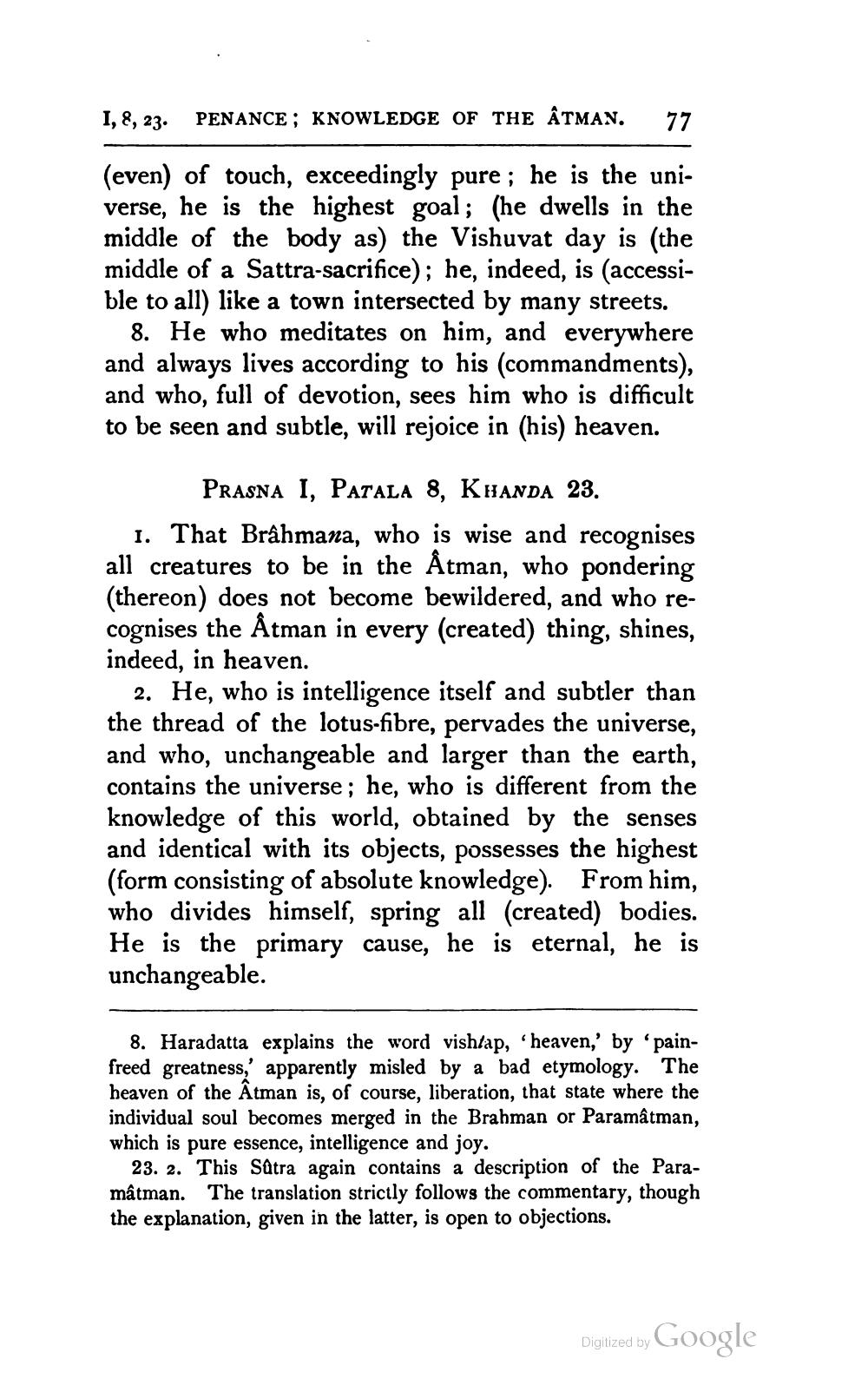________________
1,8, 23. PENANCE; KNOWLEDGE OF THE ÂTMAN.
77
(even) of touch, exceedingly pure ; he is the universe, he is the highest goal; (he dwells in the middle of the body as) the Vishuvat day is (the middle of a Sattra-sacrifice); he, indeed, is (accessible to all) like a town intersected by many streets.
8. He who meditates on him, and everywhere and always lives according to his (commandments), and who, full of devotion, sees him who is difficult to be seen and subtle, will rejoice in (his) heaven.
Prasna I, Patala 8, KHANDA 23. 1. That Brâhmana, who is wise and recognises all creatures to be in the Åtman, who pondering (thereon) does not become bewildered, and who recognises the Atman in every (created) thing, shines, indeed, in heaven.
2. He, who is intelligence itself and subtler than the thread of the lotus-fibre, pervades the universe, and who, unchangeable and larger than the earth, contains the universe; he, who is different from the knowledge of this world, obtained by the senses and identical with its objects, possesses the highest (form consisting of absolute knowledge). From him, who divides himself, spring all (created) bodies. He is the primary cause, he is eternal, he is unchangeable.
8. Haradatta explains the word vishtap, 'heaven,' by "painfreed greatness,' apparently misled by a bad etymology. The heaven of the Atman is, of course, liberation, that state where the individual soul becomes merged in the Brahman or Paramâtman, which is pure essence, intelligence and joy.
23. 2. This Sätra again contains a description of the Paramâtman. The translation strictly follows the commentary, though the explanation, given in the latter, is open to objections.
Digitized by Google




